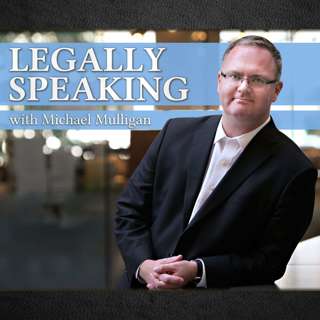
Bail Myths, Real Fixes
Think “bail reform” will clean up street disorder? We take a hard look at what Bill C‑14 really changes and why it targets the wrong problem. From the presumption of innocence to the right to remain silent, we trace how symbolic tweaks and reverse onus proposals collide with Charter protections while doing little to speed justice or improve safety. If the true bottleneck is time to trial, then the fixes live in courtrooms, staffing, treatment, and housing—not in performative reminders to judg...
30 Okt 21min

When Indigenous Identity Emerges After Sentencing
A guilty plea, a forgotten past, and a courtroom test of how identity meets justice. We open with a 2011 assault case resolved by a joint submission: an 18‑month conditional sentence after the accused conceded his force exceeded self‑defence. Years later, he discovered his father was Indigenous and obtained status, then sought an out‑of‑time appeal to revisit both plea and sentence. We walk through the legal gatekeeping for late appeals—intention, prejudice, merit, and the interests of justic...
23 Okt 21min

From Picton’s Farm to the Coroner
A notorious criminal case and a sweeping policy change collide in one packed hour, and the throughline is unmistakable: how law balances dignity, proof, and practical consequences. We start by unpacking the latest development in the Robert Picton matter: with the RCMP ending their investigation and holding thousands of seized items—some believed to be human remains—families sought a court order to keep everything preserved for a civil occupiers’ liability claim against Picton’s estate and his...
9 Okt 21min

Sugar, Support, and Frankie
A seven‑month marriage sparked on a sugar‑arrangement site, a $12,000/month support bid, and a dog named Frankie—this one has layers. We open with a candid walk‑through of interim spousal support: what it’s for, how courts weigh “capacity to pay,” and why selling capital assets to fund an opulent lifestyle isn’t the same as earning income. The applicant’s luxury‑level budget meets judicial scrutiny, while the respondent’s push to impute escort income and point to family wealth hits legal limi...
2 Okt 22min

When Does Someone Become an Agent of the State?
Where do your constitutional protections begin and end? The dividing line between private actions and state authority forms the heart of a fascinating BC Court of Appeal decision that clarifies when ordinary citizens become "agents of the police." The case centers on Loomis Courier employees who, at police direction, set aside suspicious packages for warrantless seizure during a drug investigation. Unlike previous cases involving independent security guards or school administrators, these em...
25 Sep 21min

Self-Defense Rights in Your Home
What happens when the line between victim and perpetrator blurs in the eyes of the law? When a homeowner confronts a crossbow-wielding intruder or store employees stop a car theft, should they face criminal charges or civil lawsuits for defending themselves and their property? Barrister Michael Mulligan unpacks the controversial legal landscape of self-defense in Canada, explaining how the 2012 amendments to the Criminal Code created a complex "reasonableness" requirement for those protectin...
19 Sep 20min

Replaced by Mr. Bean in an Office Without AC? That's Constructive Dismissal
Fentanyl trafficking sentences in BC just got a major overhaul. The BC Court of Appeal has mapped out clearer sentencing guidelines, creating a three-tier system that reflects the devastating impact of the deadly opioid crisis. Street-level dealers now face 18 months to 3 years, mid-level traffickers 4-7 years, and wholesale distributors 8-15 years behind bars. The Court emphasized this framework still allows judges to tailor sentences to individual circumstances, but makes clear that the gra...
4 Sep 21min





















